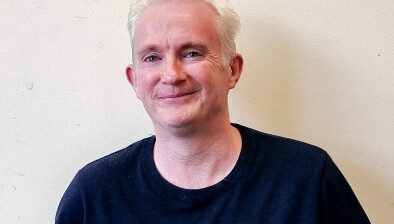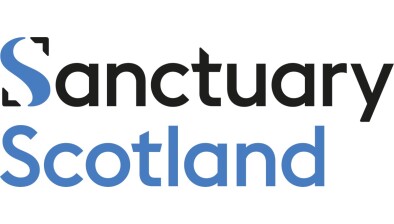Rhona McMillan: Why words matter - reflections on language and homelessness

Rhona McMillan
Rhona McMillan, communications manager, at the Glasgow Alliance to End Homelessness, discusses the importance of language in talking about homelessness.
The other week, I was delighted to be part of a panel hosted by the University of Glasgow’s Road to Home initiative on the role of language and homelessness. Joined by Lorraine McGrath, Chief Executive of Simon Community Scotland and Dr Alasdair Stewart, Lecturer of University of Glasgow’s Social and Public Policy department, I was in good company. On reflection of the discussion, I’ve pulled together some thoughts.
Language has always interested me (I am in comms!). The old adage ‘sticks and stones may break my bones, but words will never harm me’ has always felt a little false. Words matter – they have the power to humanise, call people to action, inspire and influence, but they can also be weaponised. They can belittle, stigmatise, isolate. It may not be the same as being lobbed by a stick or a stone, but that still sounds pretty harmful to me? I’m a big believer in the role of words and the stories we tell. So, how does the language we use shape how we think about homelessness? What impact does this have?
The panel discussion quickly made the connection that we can’t separate the personal impact of language from structures and systems. We often talk about homelessness in terms of personal responsibility – how many times have you heard someone discuss homelessness as though it’s down to a person’s poor decision-making? But our conversations at a societal level rarely recognise that homelessness is the result of systemic failure.
When we continue to discuss homelessness as something that somebody has brought onto themself, we not only create a culture of stigma, we continue to reinforce the systems that have made these conditions. Ending homelessness is everyone’s responsibility, and if somebody becomes homeless, it’s the result of every safety net (employment, health care, benefits, even community connections) failing that person. It’s not a personal failure, but our careless handling of this discussion often ends in that individual experiencing stigma and internalised shame.
The impact reaches far wider than this. The rhetoric that homelessness happens to a certain type of person or as a result of poor personal choices, means we miss the causes and how to address it. Our general public has a limited understanding of what homelessness is and too often conflates homelessness exclusively with rough sleeping. I understand why this happens – rough sleeping is the most visible and extreme form. Still, we’re failing people in our communities by reducing homelessness to rough sleeping exclusively, and missing out the many forms of temporary, emergency and hidden forms of homelessness from our societal conversation. Do many people recognise that sofa surfing, for example, is a form of homelessness? And if you’re one of the 714,000 people and families sofa surfing today in the UK, has that lack of understanding prevented you from accessing the support you’re entitled to?
Crisis and Frameworks UK have done fantastic work around public perceptions and reframing messaging regarding homelessness. They identified that the public tends to recognise three archetypes of who homelessness happens to; a middle-aged man, a runaway teenager or a woman fleeing domestic violence. These stereotypes perpetuate our societal discussion of homelessness. During the webinar, Alasdair shared an interesting anecdote about using AI to search for images of people experiencing homelessness. The search return’s lack of diversity reinforced those archetypes – many middle-aged men rough sleeping, often with the dreaded ‘head clutcher’ pose. These archetypes exist and massively require our support, but there are a number of groups at higher risk of experiencing homelessness, such as BAME groups, LGBT people, care experienced people and those liberated from prison, young, single people aged 16 – 25 and people experiencing poverty. When we exclude these groups from our discussion in favour of those three archetypes, we’re reinforcing those barriers that prevent us from addressing the drivers and levers that result in people becoming homeless. We’re not getting the complete picture.
Throughout the panel discussion, it was highlighted that this issue around language isn’t just happening at a local level, nor just perpetuated as a tabloid headline grabber, but even at a policy level. In Scotland, we have some of the most robust homelessness legislation in the world, but even that doesn’t exempt us from language which reinforces these power dynamics.
The media, as well, have a huge role to play in how we tell stories about homelessness. A reframing of how we tell stories about homelessness is required; stories of people experiencing homelessness not just to provoke rage or elicit sympathy but to set them in the context of the broader socio-economic issues and conditions.
As a sector, we’re increasingly trauma aware, and the shift to trauma-informed approaches in our services is welcome. As one member of GHIFT said, ‘to be trauma-informed is to be language-informed’. We must be aware of how language has been used for and against the people we support and model more informed language at all levels of our services and systems. On an individual level, through our language, we can reinforce to the people we support that homelessness is not their fault, nor must it be their identity, something that ‘others’ them, but a transitory experience and a brief life event. The relationship between language and stigma is something that we’re interested in at the Alliance. As part of our movement for change, we aim to explore how we can reduce stigma in Glasgow.
I could go on – once you open the box, it becomes clear that language doesn’t happen in isolation. It affects us and is affected by us at every level. This feels synonymous with the wider homelessness context at large, that interconnectedness of all systems and services. Language is a driver, something we must actively consider and be conscious of how it can be deployed. As a communicator, it’s not something I feel I hold all the answers to, but I’ll always aim to put people at the centre and tell better stories of how we got here and where to go.







